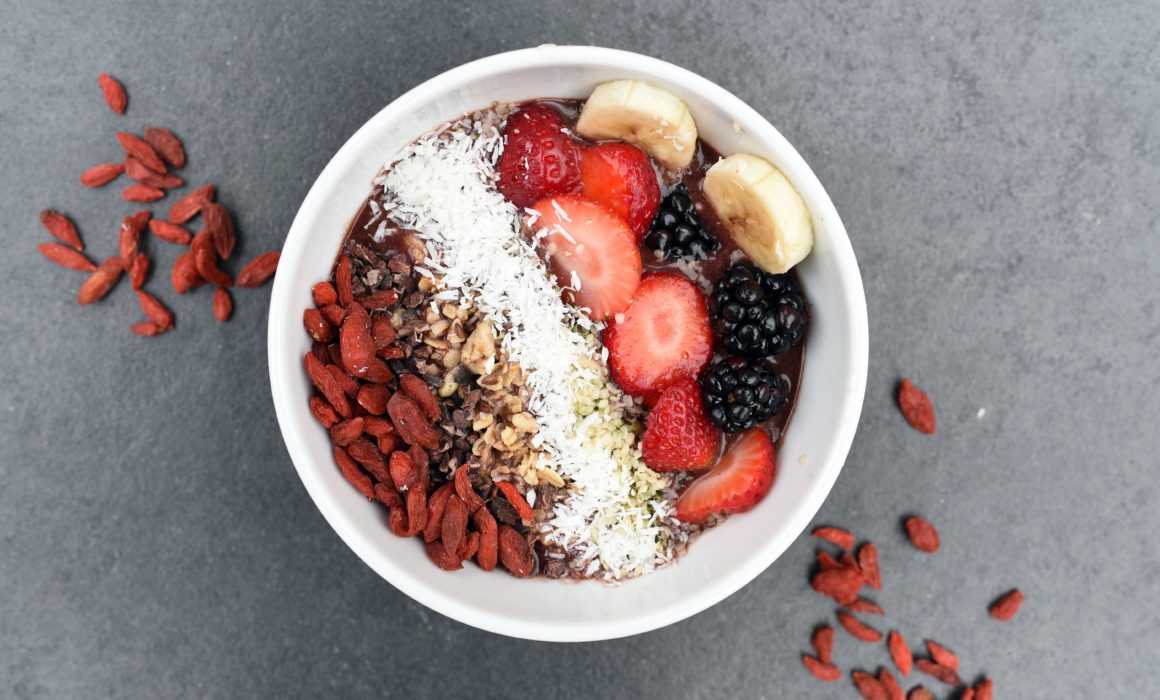Let’s Talk Superfoods
You’ve probably heard this word more than once, but have you ever wondered what it means or exactly what it refers to? A quick search on google says it’s “a nutrient-rich food considered to be especially beneficial for health and well-being.” Ok then… but what does that really mean?
Superfoods are foods that have a very high nutritional density. This means that they provide a high amount of nutrients. They contain a high volume of minerals, vitamins, antioxidants, enzymes and health fats. All of these nutrients are essential to your body so you can thrive, keep healthy and feel great. Studies have also shown that superfoods high in antioxidants and flavonoids help prevent coronary heart disease and cancer, as well as improving immunity and decreasing inflammation.
So what are some examples of superfoods?
Examples of superfoods
While no single food is a magical do all, many studies have shown that certain foods provide greater health benefits than others. Here are 10 examples of some powerful superfoods you can incorporate into your daily nutrition.
Açaí
Açaí (berries are native to Central and South America, especially Brazil. Also known as the Brazilian beauty berry, their high antioxidant content (more so than blueberries or cranberries) can help prevent signs of anti-aging and keep your skin looking youthful and healthy.
Banana
Bananas are a great source of potassium, which is beneficial for heart health. A banana’s fiber content also aids in digestion and keeps blood sugar levels from spiking.
Kale
Kale is rich in vitamins A, C, E, and K, and many B vitamins. Leafy greens also contain an abundance of carotenoids, iron, magnesium, potassium, and calcium.
One cup of kale provides 550 micrograms (mcg) of vitamin K, equivalent to over 680 percent of a person’s daily needs. Kale and other leafy greens are high in fiber and water content, both promote regularity and a healthy digestive tract.
Mushrooms
Mushrooms contain vitamin A, potassium, fiber, and several antioxidants not present in most other foods (although the nutrient content varies depending on the type). Studies suggest their unique antioxidant content may also play a role in reducing inflammation and preventing certain types of cancers.
Avocado
Avocado is high in many nutrients, including fiber, vitamins, minerals and healthy fats. Similar to olive oil, avocado is high in monounsaturated fats (MUFAs). Oleic acid is the most predominant MUFA in avocado, which is linked to reduced inflammation in the body. Eating avocado may reduce your risk of heart disease, metabolic syndrome and certain types of cancer.
Nuts and Seeds
Nuts and seeds are high in fiber, vegetarian protein and heart-healthy fats. Research indicates that eating nuts and seeds can have a protective effect against heart disease. Common nuts and seeds include:
- Almonds, pecans, pistachios, walnuts, cashews, Brazil nuts, macadamia nuts.
- Peanuts — technically a legume, but often considered a nut.
- Sunflower seeds, pumpkin seeds, chia seeds, flaxseeds, hemp seeds.
Here’s a nice fact, even though nuts and seeds are calorically dense, some types of nuts are linked to weight loss when included in a balanced diet.
Ginger
Ginger root contains antioxidants, such as gingerol, that may be responsible for many of the reported health benefits associated with this food. Several studies suggest it may also reduce your risk of chronic illnesses such as heart disease, dementia and certain cancers.
Salmon
The high omega-3 fatty acid content in salmon and other fatty fish, such as trout and herring, can decrease the risk of abnormal heartbeats, reduce cholesterol and slow the growth of arterial plaque.
Blueberries
Tiny but mighty, blueberries are packed with nutrients and are full disease-fighting antioxidants and phytochemicals. They also have plenty of vitamin C, vitamin K and manganese.
Cacao
Cacao is cocoa’s healthier cousin. Raw cacao contains 300 different chemical compounds, and in addition the antioxidant content is 4 times the amount of regular processed dark chocolate and 20 times more than blueberries.
As you can see, the foods we eat can play a significant role in overall health and how we feel each day. Including superfoods in your daily diet is a quick and easy way to nourish your body with natural vitamins and minerals by incorporating them into snacks, soups, smoothies, oatmeal, water, yogurt, dressings, the possibilities are endless!













